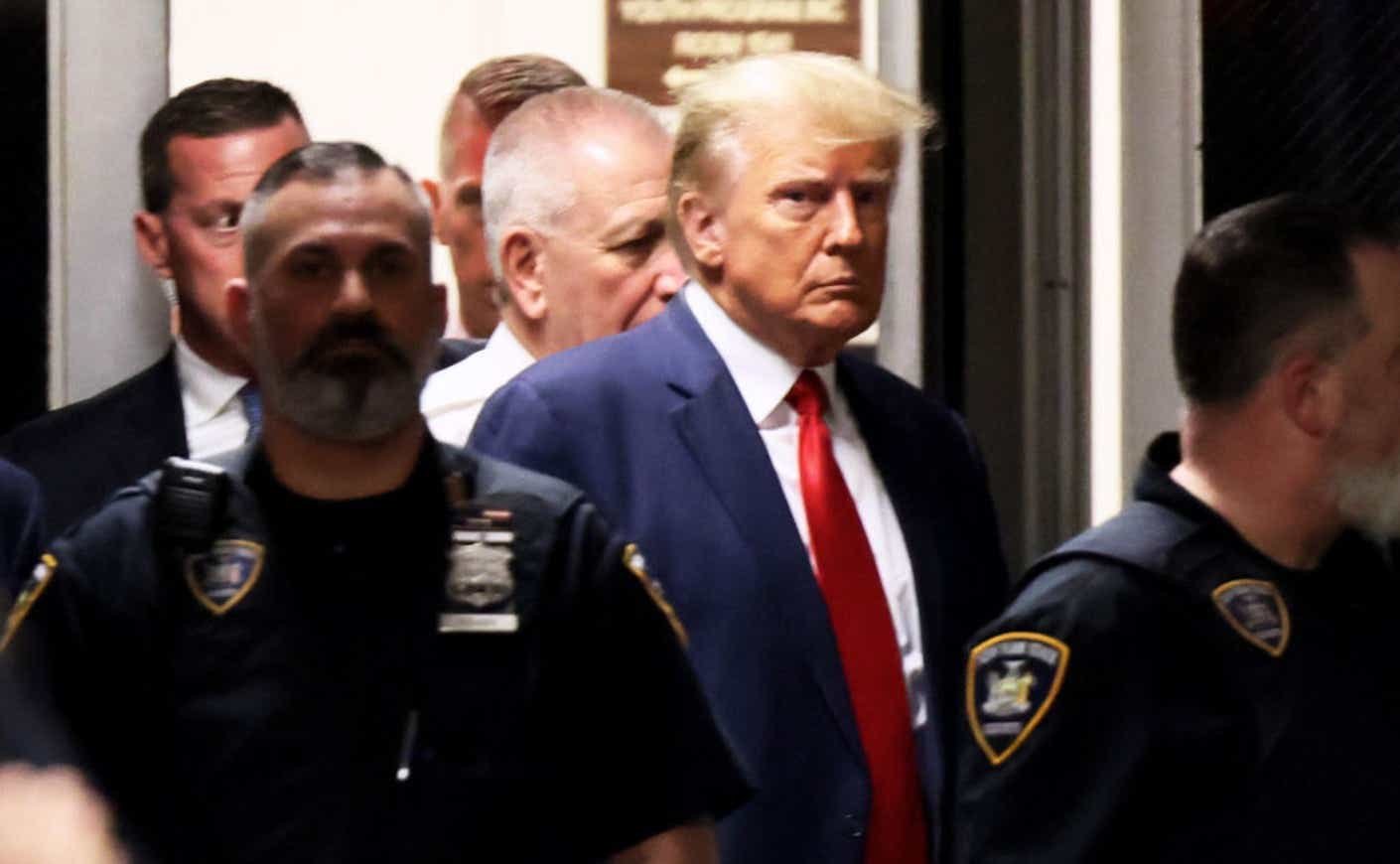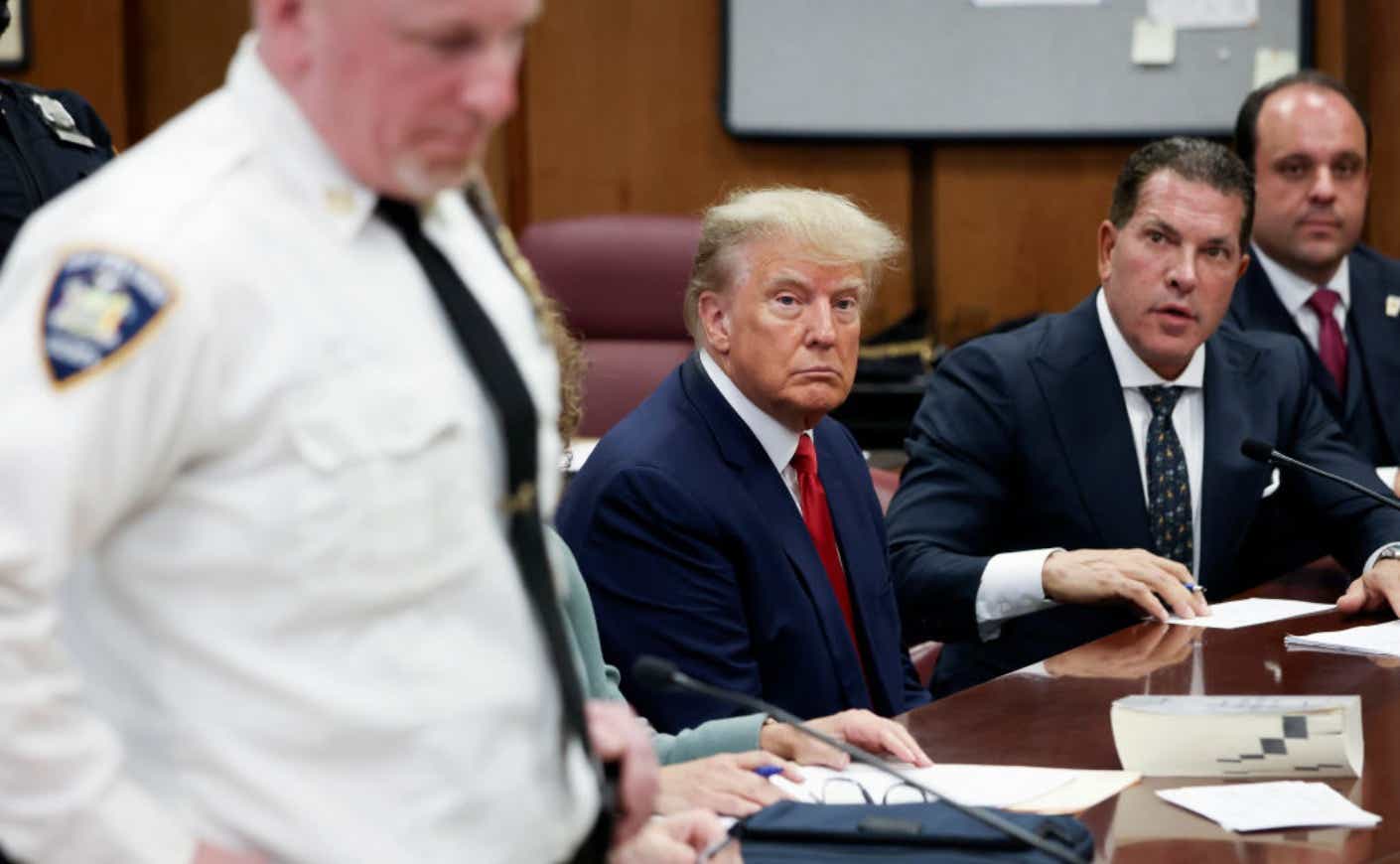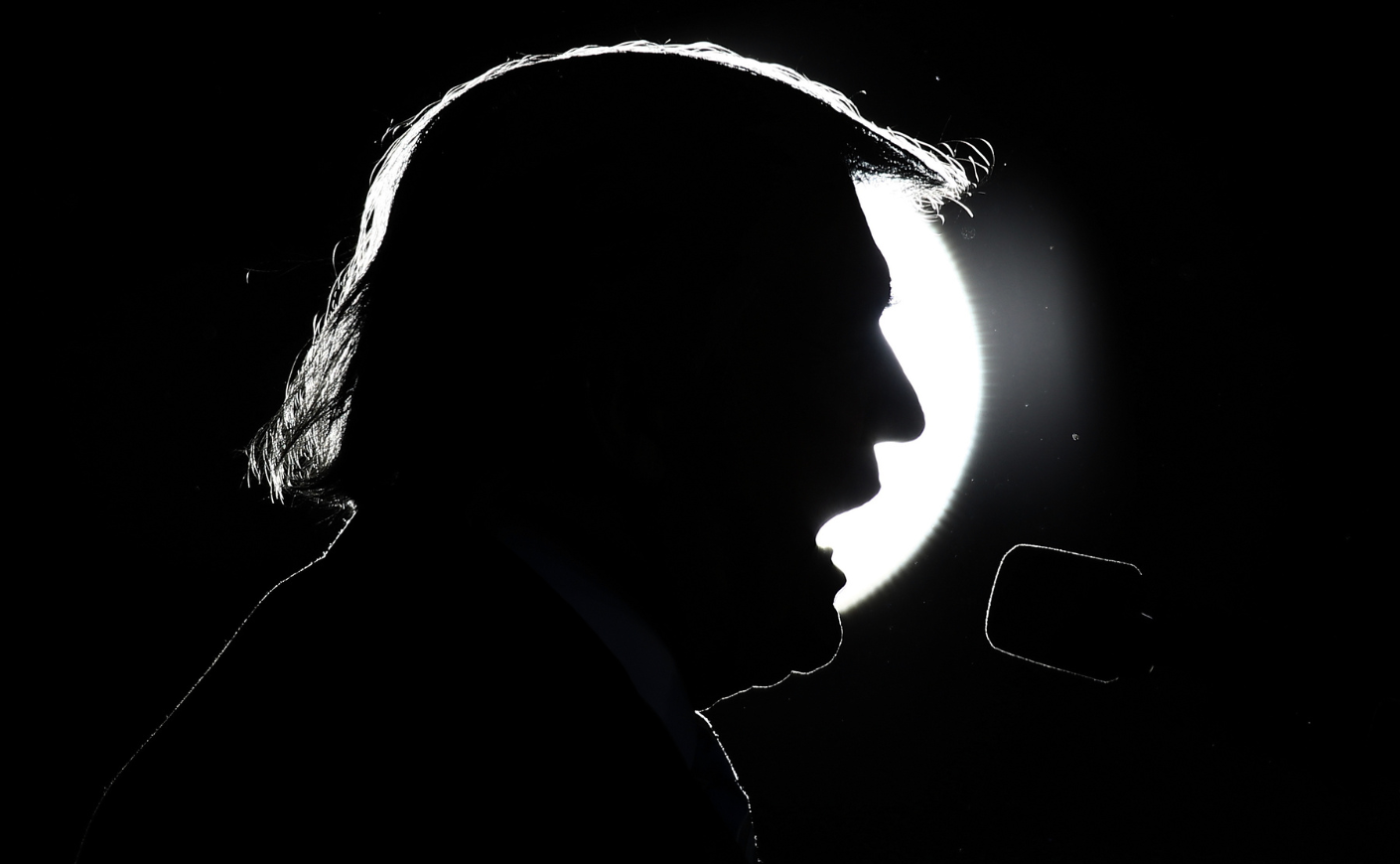Donald Trump is still campaigning for a return to the White House, and it doesn’t look like those 34 felony charges are going to stop him — or will they?
That’s the big question following his historic indictment late last month for his role in paying hush money to adult film star Stormy Daniels, which Manhattan’s district attorney is using to build a case that Trump falsified business records and violated campaign finance law.
Just weeks after he pleaded not guilty, the former president didn’t seem phased by the dramatic ordeal. “I’d never drop out, it’s not my thing,” Trump told Fox News when he was asked about a potential conviction.
Whether the indictment will help or hinder Trump politically remains to be seen, but legal experts say his 2024 campaign can still proceed. “There’s nothing that prevents candidates from running for president if they have a criminal conviction or if they’re facing criminal proceedings during the campaign,” Aziz Huq, a constitutional law professor at the University of Chicago, tells Katie Couric Media.
But this opens the door to many more questions, including what might happen if Trump wins re-election and is convicted of a felony while in the White House. Constitutional lawyers weighed into this thorny debate and its larger implications.

Trump can still run for president and win
In short, even if Trump is convicted, the charges against him won’t disqualify him from being commander-in-chief. That’s because the U.S. Constitution outlines only three requirements to become president: A person must be a natural-born citizen, 35 years or older, and a U.S. resident for at least 14 years. (There is one other piece of the Constitution that could come into play for Trump if he took the fall on some of the other allegations he’s facing, but more on that in a minute.)
Some believe the decision to keep these restrictions relatively loose could simply be because our founding fathers didn’t envision a circumstance in which a presidential candidate could be facing indictment and potential conviction. “I don’t think our current electoral climate could possibly have been imagined by the framers,” says University of Wake Forest law professor Shannon Gilreath.
Still, other legal experts think that the current status quo, though imperfect, is ultimately more democratic. Huq pointed out that in other countries, like Cambodia, the criminal process has been traditionally used to remove rivals.
“If you are in a country where it is easy for the government to use the criminal justice system to target political opponents, then it will be a problem to link eligibility for office to being free of the criminal process,” says Huq.
Has anyone run for president after being convicted?
While Trump is the most high-profile candidate to ever run for the Oval Office while facing criminal charges, he isn’t the first. In fact, some have even kicked off a campaign after they were already behind bars.
For instance, Eugene V. Debs ran for the highest office in the land in 1920 while serving a 10-year prison sentence at the Atlanta Federal Penitentiary for violating the Espionage Act. Then there was the late conspiracy theorist Lyndon LaRouche, who was convicted of tax and mail fraud in 1988 before running for president from prison four years year. Another example is Native American activist Leonard Peltier, who was imprisoned for the 1975 murders of two FBI agents on a reservation in South Dakota (a crime he says he didn’t commit). In 2004, he was still able to become the presidential candidate of the Peace and Freedom Party.
Despite the historic nature of his indictment, Trump is actually the second president in history to find himself under arrest. While the 45th president faces far more serious charges, President Ulysses S. Grant was taken into custody by police in 1872 for speeding in his horse carriage before ultimately being released on a $20 bond, which equates to just under $500 in today’s dollars. Still, that same year he won a second term as president.
But one interesting wrinkle in our current legal system is that even though people with convictions can still run for office, it has been common practice in the U.S. to make felons ineligible to vote. In some states, like Arizona and Kentucky, this may be implemented permanently. That said, most states restore a former inmate’s right to vote after they’ve completed their prison sentence.

But Trump will be at the center of several other investigations, too
On top of his indictment in New York, the former president faces three additional criminal probes on both state and federal levels. This includes his role during the deadly Jan. 6 attack on the U.S. Capitol, his mishandling of classified documents found at his Mar-a-Lago estate in Florida, and his efforts to overturn the 2020 election results in Georgia. All of these cases could lead to a litany of charges, such as contempt of the court, the mishandling of official documents, and various election code violations. As part of the Jan. 6 riot, he could also face insurrection, conspiracy, and the obstruction of an official proceeding after calling on then-vice president Mike Pence to reject electoral votes. But just how much weight do these carry? The last charge could be punishable by up to 20 years in prison.
If Trump did face punishment regarding Jan. 6, that could turn many commentators’ attention to Section 3 of the 14th Amendment, which explicitly prevents a person from holding office if they’ve taken part in an insurrection or rebellion against the U.S. (though even that can be overcome with a two-thirds vote from Congress). But Huq says it’s unclear whether Trump would be disqualified for office under this rule. “It’s a hard question because there is disagreement about how Section 3 gets implemented: Is it automatic? Can Congress impose it? Or a court?” he tells us.
These legal obstacles also don’t seem to be affecting Trump’s electability — at least according to recent polling. In a CNBC All-America Economic Survey, 58 percent of Americans said the former president’s indictment would have no impact on how they vote. That said, a majority of voters say bringing charges against the ex-president was “a good thing” for the rule of law in the country.

And if Trump actually wins the presidency?
It has long been debated whether a sitting president can be charged with a crime — and the short answer is, it depends. As it currently stands, Trump can’t be held liable for civil damages related to his presidential powers, but he can be held liable in federal court for civil damages related to his personal conduct before he became president.
There’s also no clear answer on whether a sitting president can be criminally prosecuted because it has never happened before in our country’s history. The Constitution doesn’t explicitly state whether a president can be prosecuted while in office, and no court hasn’t issued a solid ruling on the issue. (The Supreme Court heard arguments about it in 1974 in regards to President Richard Nixon, but it never answered the question.)
“We do know that presidential immunity must yield to the need for evidence in a serious criminal trial, as we saw in United States v. Nixon, because Nixon was forced by the court to turn over the Watergate tapes,” says Gilreath. “But we’ve never had a scenario quite like this one with Trump.”
You would think being at the center of multiple investigations would be a distraction for a president at the very least (whether it actually hurts a president’s ability to do their job is debatable). Still, our experts say Supreme Court precedent suggests that such diversions wouldn’t a Constitutional problem if they were somehow bogged down with civil litigation. They pointed to a 1994 case in which Arkansas state official Paula Corbin Jones sued President Bill Clinton over several alleged “abhorrent” sexual advances. Ultimately, the landmark decision established that a current president has no immunity from civil law litigation, and Gilreath says it found that “defending oneself from the potential of civil money damages would not be unduly distracting for a president.”
While history can’t always be a definitive guide, our experts believe that Americans ultimately understand the enormous power that elected officials wield while serving in public office, even if the current indictment and investigations further stir up support within Trump’s diehard base. “Voters were willing to give Trump a benefit of the doubt as the outsider candidate, just because of the failures and faults they saw in the overall system, but I think the various investigations into him have hurt him with those voters,” Gilreath tells us.









